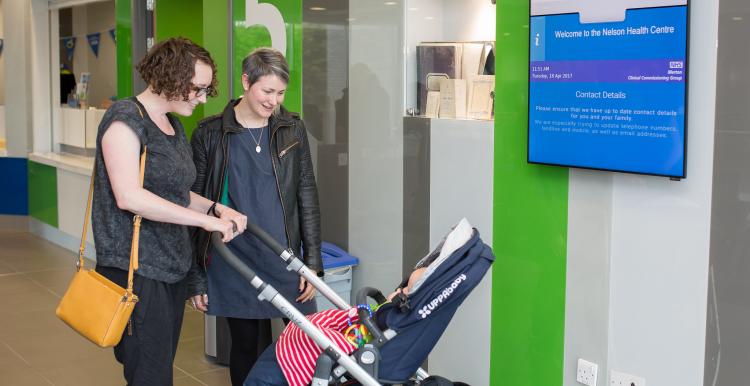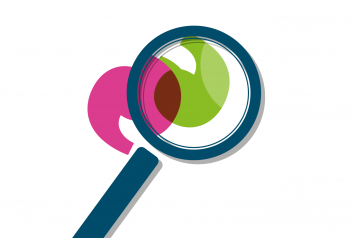Personal Health Budgets: what they are and how to apply

What are Personal Health Budgets?
Personal Health Budgets (PHBs) are for people with long term conditions who are eligible for ontinuing Healthcare or CCG funding and whose case is being managed by the Trafford Community Health Team.
In December 2019 the legal ‘right to have’ a personal health budget was extended from NHS adults continuing healthcare and children and young people’s continuing care, to include Section 117 Mental Health Aftercare and people eligible for wheelchair services (Personal Wheelchair Budgets).
If you have been assessed as requiring these services you are entitled to a PHB.
Note the difference
- A personal health budget is for your NHS healthcare and support needs.
- A personal budget is for your social care and support needs.
A Personal Health Budget (PHB) is an agreed amount of money with which a patient can plan and implement care and support for their healthcare and wellbeing needs.
The care purchased must meet the patient’s health outcomes (a way to measure how well their health is maintained or improved), which will be agreed with the patients’ Community Health Practitioner or Clinical Case Manager..
Why choose a Personal Health Budget?
Choosing a PHB means the patient will have the option and flexibility to decide on the services which meet their health outcomes and will have control over their own care, enabling them to coordinate it in a manner which suits their lifestyle and wellbeing.
How can a personal health budget be managed?
- Notional budget: No money changes hands. The personal health budget holder knows how much money is available for their assessed needs and decides together with the NHS team how to spend that money. The NHS is then responsible for holding the money and arranging the agreed care and support.
- Third party budget: An organisation independent of both the person and the NHS commissioner (for example an independent user trust or a voluntary organisation) is responsible for and holds the money on the person’s behalf. They then work in partnership with the person and their family to ensure the care they arrange and pay for with the budget meets the agreed outcomes in the care plan.
- Direct payment: The personal health budget holder or their representative has the money in a bank account and takes responsibility for purchasing the agreed care and support. Budget holders must show what the money has been spent on. Further guidance is included in the Direct Payments for Healthcare guidance.
The Government is keen for people to have more choice and control in the planning and support of their health and social care needs.
It is possible to develop a joint budget where the patient combines a PHB with a Personal Budget for care from Council funding streams.
You do not have to have a PHB if you do not want one.
Support is available help you manage the PHB which can be in the form of:
- a broker who helps you write and implement your plan
- payroll/accountancy company to help you as an employer of Personal Assistants
Who is eligible for a Personal Health Budget?
Please note: this is the ‘local offer’ as specified by GM ICB (Trafford Locality)
- PHBs can be offered to anyone (children/adults) who is eligible for NHS funding as assessed by one of the following teams:
- Nurses Personalised Care Team (Continuing Healthcare)
- Health practitioners Learning Disability Teams
- Community Psychiatric Nurses – Community Mental Health Teams
- The Health Professional is responsible to support the patient throughout the process and to apply for any changes to the PHB.
- If a patient is eligible then a Nurse or Clinical Case Manager will meet with them to talk about their PHB, help them write their support plan and identify any help they may need to implement their plan. The length of time this will take depends on their circumstances.
What can the PHB be used for?
 Based on the assessment of the patient and the agreed Health Outcomes the PHB might be spent for example, on the following:
Based on the assessment of the patient and the agreed Health Outcomes the PHB might be spent for example, on the following:
- Equipment
- Respite and short breaks
- Support to medical appointments
- Overnight care
- Support with daily living and activities to maintain/improve your health
Please see the video links below for more information on how PHBs can be spent:
What the PHB can’t be used for
- Core GP services, emergency care and hospital based care cannot be charged to a personal health budget.
- Nor on services inappropriate for the state to provide, such as; alcohol, tobacco, gambling, debt repayment or illegal items.
- Prescriptions and prescribed drugs
- CBT and Counselling
- Health Assessments
- Anything which does not meet agreed Health Outcomes
How the money is managed
There are three types of PHB:
- Managed Account: managed by a third party
- Direct Payment: paid to a prepayment card (monitored by Trafford Councils finance and audit role)
- Notional Account: Managed by Trafford CCG
Crucial information
- The Child/Adult must be assessed as eligible for health (CCG remove) funding and must be case managed by a Trafford Community Health Team
- The Child/Adult must be registered with a Trafford GP
- The Child/Adult cannot be currently in hospital – The exceptions to this are when the individual is on a long-term inpatient stay with the aim to return to the community, e.g. long-term mental health inpatients where there is lots of time to ensure the plan is thorough and the correct processes can be followed.
- The PHB MUST focus on delivery of the Health Outcomes.
- The Personal Health Budget amount should not exceed the cost of a commissioned service
- The standard Trafford Resource Allocation system must be used to calculate the indicative budget allocation
- The approval for the funding for a PHB can only be made at the Joint Resource Allocation Panel following a Team Manager sign off.
- This includes any decisions regarding funding splits for joint funded social care and health funded budgets.
- If you use a Direct Payment method to manage your PHB you will be asked to provide information on how you spend it according to your Direct Payment agreement.


